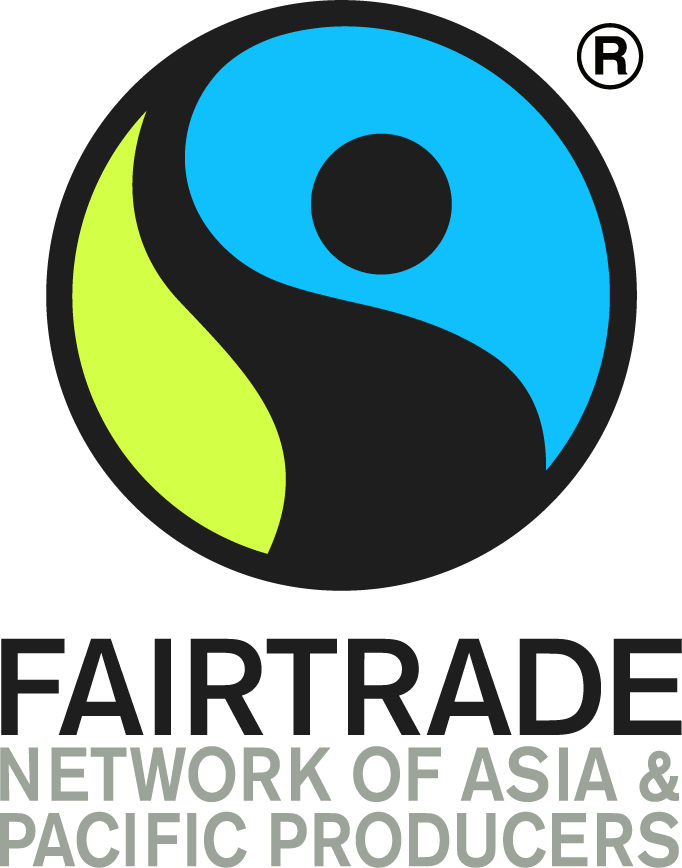Fairtrade NAPP at the 8th Annual Global Resource Mobilisation Working Group Workshop in Padua, Italy
Driving Forward Fairtrade's Global Impact


The 8th Annual GRM Working Group (WG) Workshop, held in the historic city of Padua, Italy, brought together a dynamic group of 35 participants, including 66% women, from across the Fairtrade network ( Producer Networks (PNs), National Fairtrade Organizations (NFOs), and Fairtrade International) to accelerate its mission of building a fairer, more sustainable future. Representing Fairtrade NAPP at this key event was CEO Bindu Sukumurapillai, who contributed valuable insights and leadership to the discussions. The three-day workshop held from April 1-3, 2025, both in-person and online, focused on critical areas of fundraising, project development, and collaboration—setting the stage for a stronger, more aligned Fairtrade community.
Workshop Goals
The workshop centered on three key objectives:
- Innovative Fundraising and Development Trends
- Collaborative Fundraising Strategies and Planning
- Project Cycle Management (PCM) Capacity Building
A Deep Dive into Key Sessions
The two-day session dove deep into various aspects of Fairtrade's fundraising and project management strategy. Highlights include:
- Fundraising Trends & Evolving Donor Landscape
- Funding Diversification: Case Studies
- Regional Fundraising Strategies: Hot-Seat Interviews
- O2B Project Funding Exchange
- Fundraising KPIs Review & 2025–2026 Action Plan
- Strengthening PCM
- Project & Programmes MEL (PP MEL) Session
- Safeguarding in Project Management
- Exit Strategy Planning
Fundraising Trends & Evolving Donor Landscape
Fairtrade International’s insightful presentation on global fundraising trends revealed a shifting donor landscape, where Official Development Assistance (ODA) has seen a decline. However, emerging donors from South Korea, Brazil, and South Africa, alongside growth in private foundation giving, present new opportunities. Fairtrade International called for innovation in engaging with these emerging donors and leveraging digital fundraising to engage younger audiences, ensuring Fairtrade remains resilient and responsive in an evolving funding environment.
Funding Diversification: Case Studies
A session on funding diversification showcased lessons from the Fairtrade Foundation's “Live Fair” campaign, which, despite initial challenges, provided valuable insights into the importance of piloting fundraising strategies, setting clear KPIs, and developing exit strategies. Participants reflected on the lessons learned and considered how they could apply these to future initiatives.
Regional Fundraising Strategies: Hot-Seat Interviews
In a high-energy "Hot-Seat Interviews" session, representatives from the 03 Fairtrade Producer Networks shared insights into their evolving regional fundraising strategies in an interactive format. Fairtrade NAPP is mapping regional stakeholders, focusing on institutional donors and high-net-worth individuals while navigating structural constraints, Fairtrade Africa is leveraging local partnerships to enhance funding complementarity, and Fairtrade CLAC is expanding resource mobilization beyond the Fairtrade system. A key takeaway was the urgent need for increased human resources, as fundraising teams are currently limited to one focal person per PN. Fairtrade NAPP emphasized continuous communication and adaptive planning as core to its strategy. The session encouraged peer learning, with proposals such as South-South cooperation, staff exchanges, and digital platforms to boost capacity and knowledge-sharing. Looking ahead, each PN aspires to professionalize their fundraising approach, build internal capacity, and diversify their funding base to drive sustainable impact for producers across the Fairtrade system.
O2B Project Funding Exchange
The O2B Project Funding Exchange session provided a platform for case studies from Fairtrade Germany, Fairtrade Foundation, and Fairtrade Max Havelaar, offering practical lessons on fundraising, from leveraging Fairtrade’s resources to the challenges of motivating smaller contributors. Key learnings emphasized the importance of transparent communication and strategic planning to ensure continued funding for impactful projects.
Key Strategy Discussions & Action Planning
The session on Fundraising KPIs Review and the 2025–2026 Action Plan highlighted the importance of aligning fundraising strategies with broader Fairtrade goals. The group worked collaboratively to refine the fundraising action plan, emphasizing the creation of a dedicated taskforce to broaden funding sources and set clear priorities for the upcoming period.
Strengthening Project Management
In the Strengthening PCM session, participants worked in groups to assess project management practices across five critical areas—stakeholder management, risk management, resource management, time management, and more. Insights shared in this session helped refine the GRM WG PCM action plan, contributing to the ongoing efforts to improve project implementation globally.
Safeguarding in Project Management
The growing expectations from donors regarding social compliance were explored, with a focus on safeguarding measures such as the IKI independent complaints mechanism and the European Commission’s SEA-H due diligence requirements. Best practices were shared, including identifying vulnerable groups during project planning and incorporating social compliance clauses in contracts.
Exit Strategy Planning
A collaborative session on developing exit strategies provided participants with the tools to ensure long-term sustainability for projects. The session emphasized the importance of community involvement, resource management, and planning for ownership transitions, ensuring projects continue to thrive after formal completion.
Key Outcomes: A Stronger, More Aligned Fairtrade Network
- Formation of a Funding Diversification Taskforce
Recognizing the urgent need to expand funding sources amidst a competitive donor landscape, participants established a taskforce to explore new avenues such as impact investment, private foundations, and non-traditional donors.
- Enhanced Collaboration Across Networks
Producer Networks (PNs) committed to aligning strategies and pooling expertise to connect their fundraising efforts with flagship initiatives like the DONUTS II, HREDD Support Fund, and the Child and Forced Labour Remediation Fund.
- Strengthening PCM Capacity
A unified approach emerged for enhancing Project Cycle Management (PCM), with the formation of a dedicated taskforce focused on the rollout of strategic tools like exit strategy guidelines and the integration of digital platforms such as Salesforce and TolaData.
- 2025 Action Plan Agreed
The Working Group adopted a revised action plan for fundraising and capacity development, anchored in shared priorities and measurable outcomes.
The 8th Annual GRM Working Group Workshop was an inspiring and action-packed event that underscored the commitment of Fairtrade's global network to innovate, collaborate, and drive forward the Fairtrade mission. With renewed focus on fundraising diversification, project management excellence, and safeguarding, the workshop set a clear path for continued success in empowering small-scale producers and creating a more equitable global trading system.
